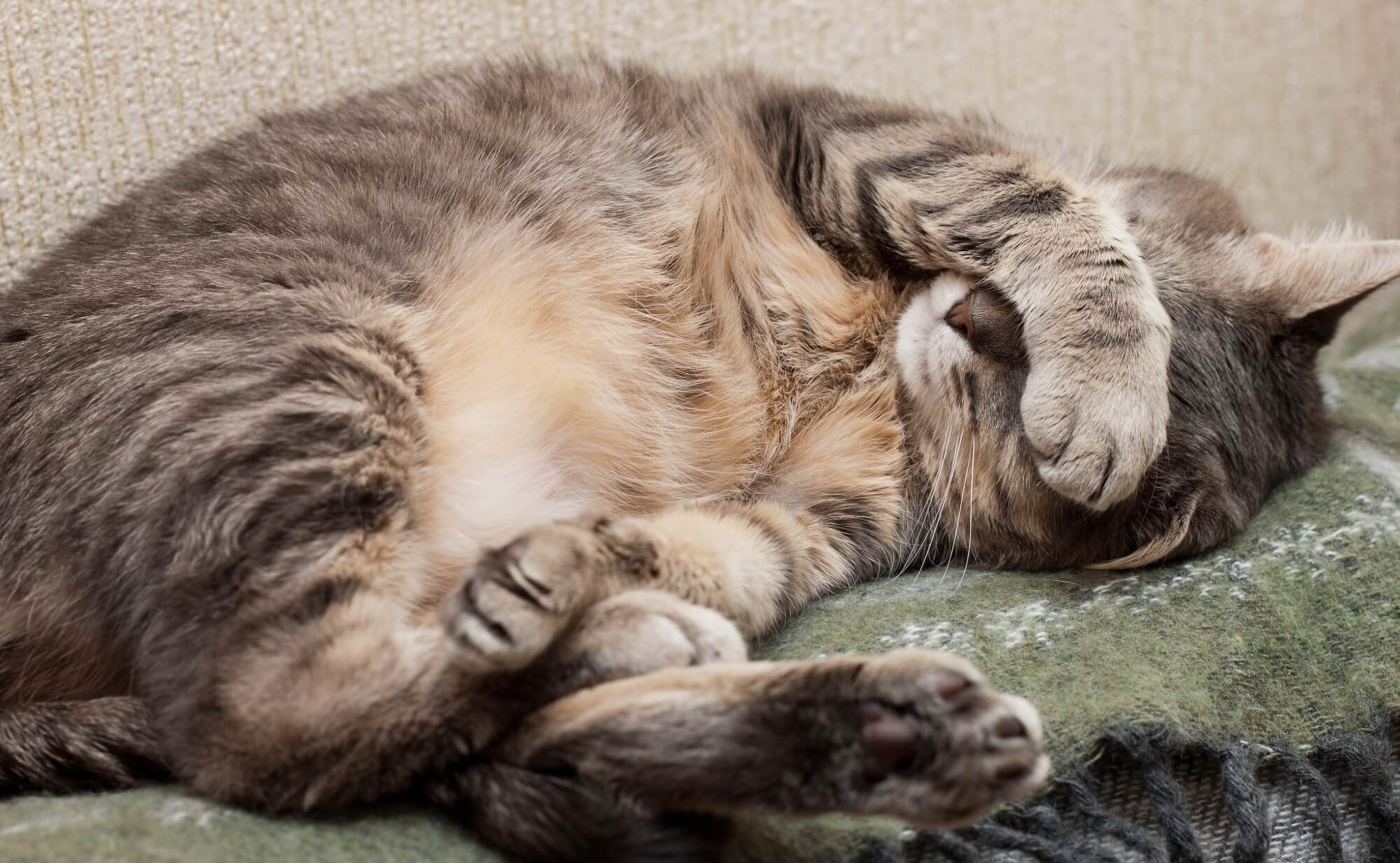Why Does My Cat Vomit?

Does your cat vomit occasionally? It’s one of the most common questions veterinarians and technicians ask pet owners—and often, the response is, “just the usual.” But what exactly does “the usual” mean? Should you accept that your cat vomits sometimes? Is it normal? How much is too much?
While opinions may vary, most veterinarians agree: cats should not vomit regularly. Occasional vomiting may happen if your cat eats something unusual, but frequent or chronic vomiting—especially after meals—often signals an underlying issue that needs attention.
If you suspect your cat eats too quickly, try using a puzzle feeder or slow feeder. These tools encourage your cat’s natural hunting instincts, reduce stress, and help slow down eating. If your cat’s vomiting improves, great! If not, further investigation may be needed.
Food Intolerance
Food intolerance occurs when an ingredient in your cat’s diet irritates the GI tract, causing immediate discomfort, vomiting, or pain. This differs from inflammatory bowel disease (IBD), which causes chronic inflammation over time as the immune system reacts to certain proteins. Both conditions improve when the offending ingredient is removed.
About 30% of cats with gastrointestinal issues are affected by food sensitivities. If your cat vomits frequently after meals, your veterinarian may recommend an elimination diet or a hydrolyzed protein diet to pinpoint the cause.
Food Allergies
True food allergies are less common but still possible. In allergic cats, tiny protein particles trigger an immune response. That’s why veterinarians often prescribe hydrolyzed protein diets, where proteins are broken down so the immune system doesn’t recognize them as allergens.
Cats must remain on this diet exclusively for at least six weeks—no other treats or food allowed—to determine whether it helps. In some cats, food allergies also cause itchy skin or overgrooming, especially on the abdomen or hind legs. If your cat is vomiting hair or producing frequent hairballs, skin-related allergies may also be involved.
Inflammatory Bowel Disease (IBD)
IBD can cause vomiting, diarrhea, weight loss, or all three. Diagnosing IBD can be challenging and often requires ruling out other causes first, such as parasites or infections. If tests are negative, veterinarians may recommend empirical deworming, dietary trials, and sometimes intestinal biopsies for a definitive diagnosis.
Treatment often includes dietary changes, probiotics, and sometimes steroids to reduce inflammation. Because every cat’s microbiome is unique, achieving balance may require some trial and error.
Intestinal Lymphoma
Sadly, some cats develop intestinal lymphoma, a cancer that mimics IBD symptoms. Ultrasound or biopsy may be required for diagnosis. Though serious, some cats respond very well to treatment and enjoy years of good quality life. Fortunately, intestinal lymphoma represents only about 5% of all feline cancers.
Infectious Enteritis
Infectious causes of vomiting, though rare, include viral, bacterial, or fungal infections. Your veterinarian can perform lab tests such as FeLV/FIV screening, fecal analysis, or urine-based fungal testing to identify these causes, especially in outdoor cats.
Causes of Vomiting Outside the GI Tract
Vomiting isn’t always digestive in origin. Conditions affecting other organs—like the liver, kidneys, thyroid, or pancreas—can also lead to vomiting. A full diagnostic workup, including blood tests, urinalysis, and abdominal ultrasound, is recommended to rule out systemic causes.
Feline Liver Disease
Common liver conditions include hepatic lipidosis, cholangiohepatitis, infectious hepatitis, and liver cancer. Bloodwork often shows elevated liver enzymes (ALT, AST, ALP, GGT, bilirubin). Further testing such as ultrasound or bile acid testing may be necessary to pinpoint the cause.
Feline Pancreatitis
Feline pancreatitis differs from the canine version and is often chronic. The pancreas, which produces digestive enzymes and insulin, becomes inflamed and painful. Only about 30% of cats with pancreatitis show vomiting, so diagnosis can be tricky.
A Texas GI Panel or abdominal ultrasound (often interpreted by a specialist) can help confirm pancreatitis. Many cats with chronic vomiting have concurrent IBD and liver inflammation, so treatment may target all three organs at once.
Treatment for Chronic Vomiting
If your cat has been diagnosed with a GI disorder or chronic vomiting, your veterinarian may recommend:
-
Cerenia – a highly effective anti-vomiting medication lasting 24 hours.
-
Ondansetron – helps relieve nausea and improves appetite.
-
Fluid therapy – supports hydration and kidney function.
-
Hydrolyzed diet trial – exclusive feeding for 4–6 weeks to identify food-related causes.
-
Prednisolone or Cyclosporine – reduces inflammation for cats with IBD or immune-related disease.
Your veterinarian will design a treatment plan based on your cat’s specific diagnosis and response. Don’t ignore ongoing vomiting—it can damage internal organs and make recovery more difficult.
If your cat is vomiting regularly, contact Somerset Veterinary Hospital for a thorough evaluation and customized treatment plan. We’ll help get your feline friend back to feeling their best.
About Us
We are a woman-owned practice committed to making you and your pet feel at home in our Ames, IA animal hospital. We deliver a full range of services to nurture their health and give them as many years as possible with you. Our services range from life stage wellness care and prevention to surgery, dentistry, and internal medicine, with the goal of meeting all your companion’s needs for life.
